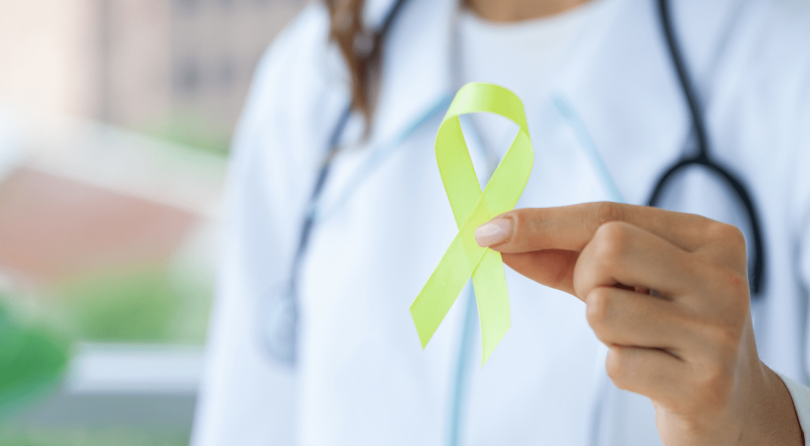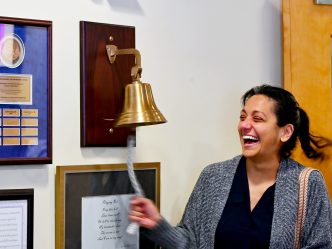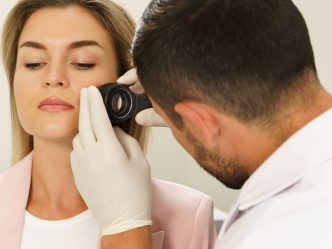When you think of lymphoma, Burkitt lymphoma most likely does not come to mind. While it is rare, about 1,200 people are diagnosed each year in the United States, the majority being children and young adults, it is an aggressive cancer that you should be aware of.
Burkitt Lymphoma is a cancer of the lymphatic system. Specifically, it is an aggressive non-Hodgkin B-cell lymphoma that accounts for 1% to 5% of all non-Hodgkin lymphomas. It is named after Denis Parsons Burkitt, who was the first person to describe the disease when he was stationed with the Peace Corps in Africa.
“A big question is: ‘how did I get it?’. If they have HIV, that is, unfortunately, the answer for most of them, but for those who don’t, there is no hereditable marker, so I tell them my answer is going to be unsatisfactory –just bad luck,” says Ayushi Chauhan, MD. Chauhan is an assistant professor and medical hematologist-oncologist at the Medical College of Georgia and the Georgia Cancer Center.
Human immunodeficiency virus (HIV) and Epstein Burr virus (EBV) are the two big risk factors that increase a patient’s chances of having Burkitt lymphoma. An immune system that is not functioning at 100% also leads to a higher risk of developing Burkitt Lymphoma.
Symptoms can vary depending on the person and where the Burkitt is in the body. A person could begin to have fevers that do not subside no matter what medication they take, they could rapidly lose weight, or they could wake up at night drenched in sweat, all in the time frame of a couple of weeks.
“It is going to be an egregious symptom. It is not something that will be simmering, it will be something that is boiling over the pot,” she said when discussing the aggression of Burkitt.
Despite the aggressive nature of Burkitt, the cure rate is incredibly high.
“Stage four is not going to be a death sentence, stage three is not going to be a death sentence, stages one and two are not going to be death sentences as long as we make it through chemotherapy.”
Advanced stages need more rounds of chemotherapy and the process of the treatment is a bit more intense than other lymphomas and cancer treatments, where you can come in and receive the treatment. For Burkitt, you typically need to be admitted to the hospital for each round of treatment since the chemotherapy is given through the spine, every three weeks.
Chauhan and her team create a game plan for each of their patients where in between treatments, the patients have appointments at the clinic to get their blood work done and infusion chair appointments in case they need blood transfusions. She and her team closely monitor their patients due to the increased risks of infections that come with the treatments.
“I have a great team. We have social work, psycho-oncology, and my nurse navigator. We make sure the patients have their numbers so they can always reach them.”
Chauhan encourages her patients to be open and honest with her so she and her team can provide the best care possible throughout the entire treatment journey.
If you would like to learn more about Burkitt Lymphoma, check out the latest episode of A Cancer Conversation. If you would like more information or to make an appointment with our physicians, you can visit our website here or call 706-721-6744.





